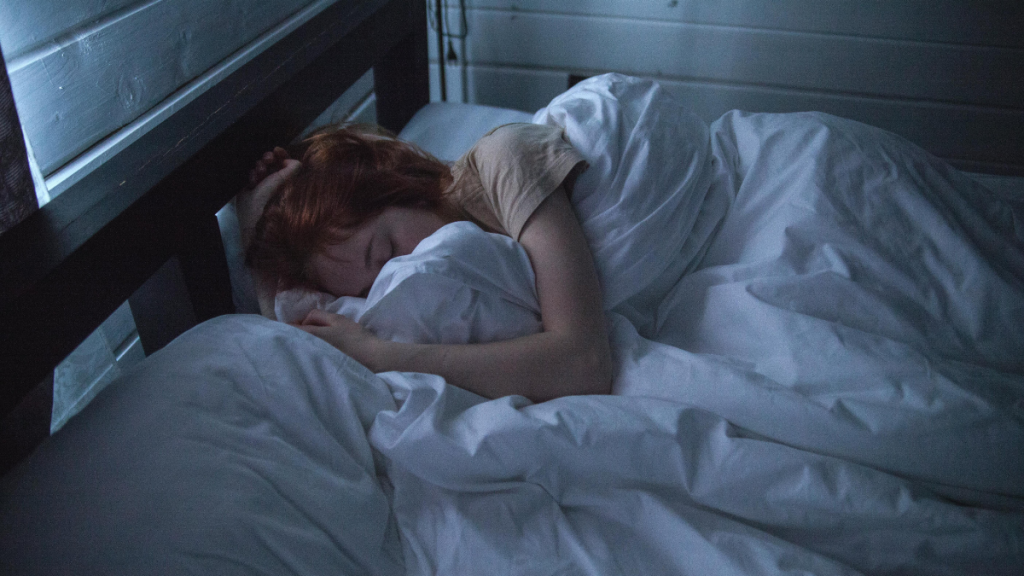Incessant notifications from smartphones, round-the-clock news cycles, and the relentless demands of work and social life have made one thing increasingly elusive for many: a good night’s sleep. With sleep duration and quality under siege, the bedroom has become a contemporary battleground where screens and stress delay the rest our bodies and minds desperately need.
The Tyranny of the Screen
“Blue light”, that ubiquitous glow emitted from the screens of electronic devices, is a villain in the story of sleep. This light interferes with the body’s natural production of melatonin, the hormone responsible for regulating sleep-wake cycles. So, the late-night scroll through social media, or last-minute email check, becomes self-sabotage as it delays bedtime and disrupts restful sleep. The proliferation of gadgets in the bedroom is not merely a lifestyle choice but a genuine threat to health and productivity.
Amid the light trivia and captivating cat videos, it’s easy to underestimate the insidious effects screens have on our nightly downtime. Remaining constantly “plugged in” blurs the boundary between daylight activities and the rest that should follow. This incessant engagement sets up a cycle of reduced sleep quality, which becomes increasingly harder to break as digital content becomes more and more compelling.
Myths of Adaptation
Some claim that human beings have adapted to shortened sleep schedules. This is wishful thinking. Research consistently confirms that adults require 7-9 hours of sleep, though some optimistically argue otherwise. Sleep deprivation is not a badge of honor; it is an ailment that exacerbates stress, weakens the immune system, and clouds judgment.
If these misconceptions are perpetuated, it stifles societal awareness of sleep’s significant health implications. Instead of valuing deep, restorative sleep, people might gravitate toward caffeinated beverages to merely survive the next day. The dangerous assumption that willpower alone can substitute for sufficient rest is a great disservice to both physical and mental health. Consulting with resources like Sleep Solution Centers can help provide realistic and long lasting solutions to sleepless nights.
Stress: The Unseen Force
The 24/7 society fosters a culture of perpetual urgency where even downtime seems to carry responsibilities. Consequently, stress becomes the unseen force undermining sound sleep. High-pressure work environments and societal pressures create a vicious cycle where stress leads to poor sleep, and sleep deprivation leads to more stress. This cycle leaves individuals feeling trapped in their own mind’s restless merry-go-round.
The problem doesn’t just begin and end in the bedroom. Dietary choices and lack of exercise compound stress, creating a trifecta of challenges. Stress eating often compounds restfulness issues, while avoiding physical activity misses a vital opportunity to exert stored energy, leading to challenges quieting the mind at night.
Strategies for Better Sleep
Gaining a better night’s rest begins with redefining priorities. Establishing a regular sleep schedule can reset the circadian rhythm. Creating a sleep-friendly environment by eliminating noise and lowering light disruptors, especially from personal electronic gadgets, takes concerted effort but yields rewards in improved rest. Limiting caffeine intake, and choosing to unwind with a soothing activity, such as reading a physical book, rather than mindlessly scrolling through a phone, can set the stage for a more restful slumber.
The Biological Symphony
For optimal health and alertness, it is important for society to respect the body’s natural “biological clock” or circadian rhythm, a genetically programmed cycle that dictates periods of alertness and rest. However, the cramming of meetings into awkward time zones and the push for productivity at all hours disrupts this internal harmony, leaving individuals tired and with impaired cognitive function during waking hours.
Global connectivity imposes peculiar burdens. Some find themselves attending meetings at unconventional hours, while others adapt to irregular sleep bursts to fit varying schedule demands. This constant adjustment to meet cross-continental obligations drastically impacts sleep quality. Adhering to the body’s signals whenever possible would dramatically improve not just quality of sleep, but overall well-being.
The Collective Responsibility
The responsibility of ensuring better sleep extends beyond the individual. It involves corporate policies and social expectations. Employers should be urged to champion healthy sleep habits by demonstrating a commitment to work-life balance. More humane work schedules and respecting employees’ off-hours mean a more productive workforce and less strain on health systems due to sleep-related issues.
Wrapping Up
Sound sleep is not merely a personal luxury; it is a societal keystone, essential for a healthy, productive population. Reclaiming rest in an unstinting society demands honest appraisal and committed actions—from individuals, employers, and communities alike. If ignored, the dire consequences are a loss of both health and human potential.




